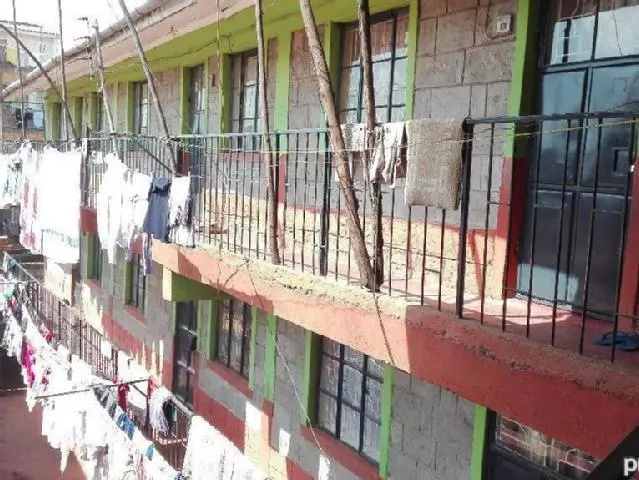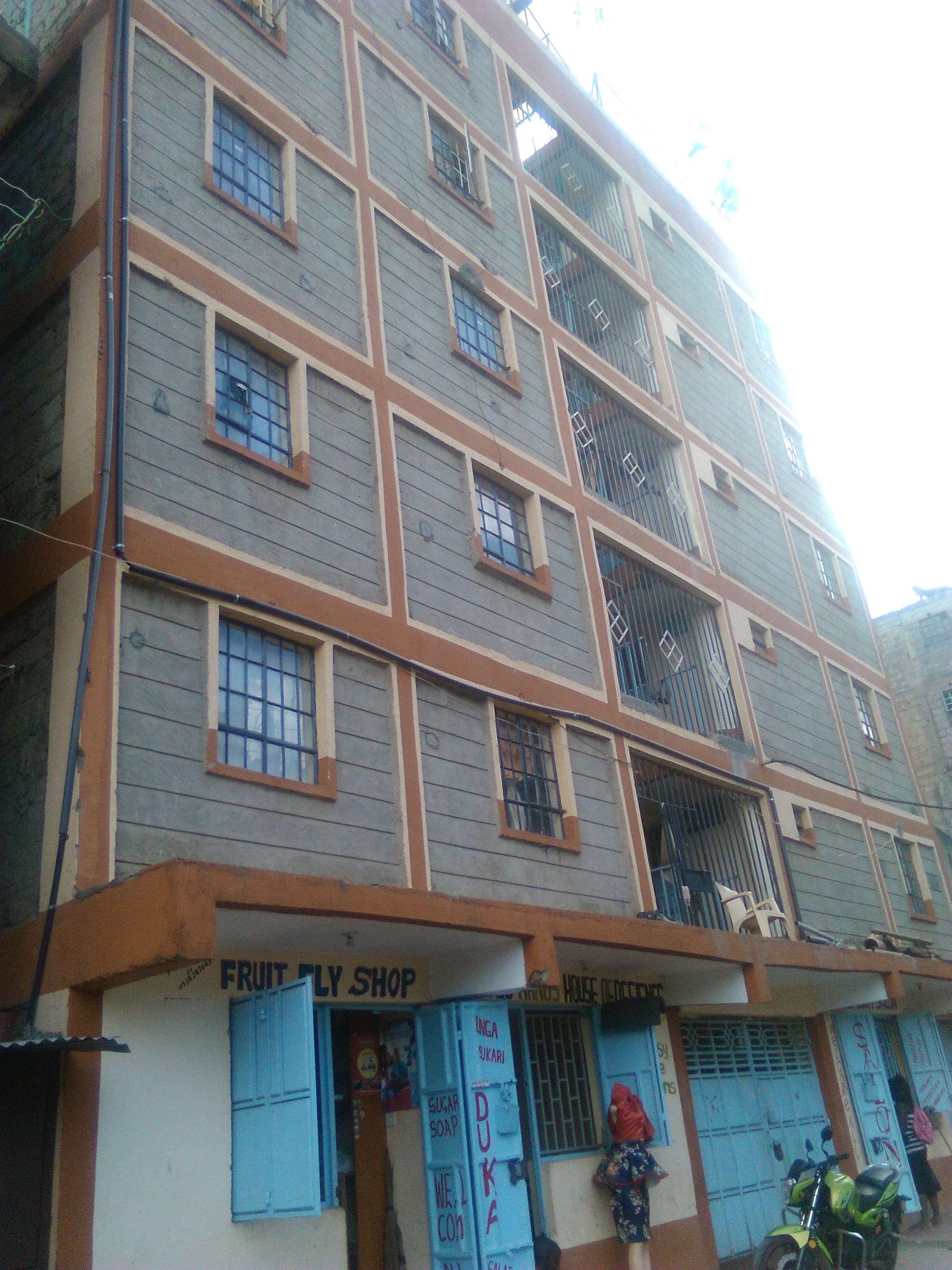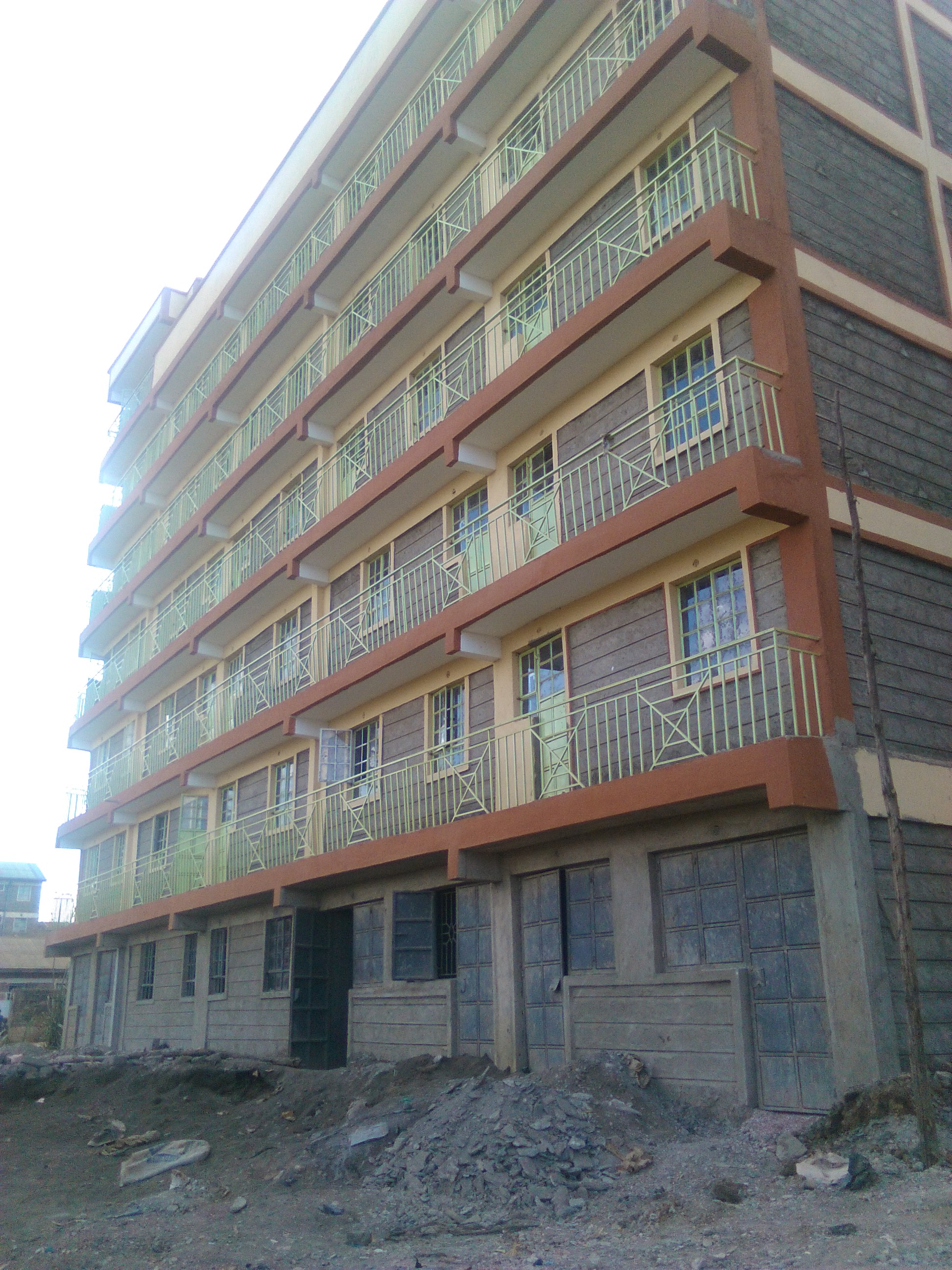- Written by Cabu Gah

Nairobi, Kenya is one of the most volatile urban centers in Africa, suffering from 60% of its population living in crowded and poverty-stricken informal settlements around the periphery of the city.
According to a 2015 survey,over 100,000 Kenyans flock to the city annually in search of greener pastures and obviously,better living standards but most of these souls are trapped in less than stellar neighborhoods,settling in ramshackles and tattered houses which also are not easily accessible and lack basic housing amenities.
James Kinyua,an Uber driver,for example,is a perfect representation of the nightmare proper housing in Nairobi has become.
"I live around Roysambu... In a tiny bedsitter that has almost everything crammed onto one - the toilet,the bed area,the living room area,the kitchen and the sinks are so close apart,it's like a movie set in a war-torn country. The room barely has space... It's all crammed up and cluttered. And I pay ten thousand shillings a month. For that little,dark unventilated space, " James says,sadly.
James has little choice. He has to live in Roysambu - or at least around Thika Road - which is not just convenient for him and his job but also close enough to his brother who lives in Zimmerman,some kilometer away from Roysambu.
Also,James has no choice - He has been totally unable to find a proper house in the surrounding neighborhoods and Kasarani has been particularly frustrating.
"I wanted to live in Kasarani. I once lived there. Back when I was in college. I think it's a nice,easily accessible and relatively safe neighborhood. But that was back then. To-day,Kasarani is a nightmare. Houses there are literally unavailable. And even when you're lucky energy to find one,you're knocked back by the crazy rent rates. I have little choice... "
Today,many house-hunting city dwellers are being forced to move further down the road to less safe estates like Santon,Hunters and further down to the crowded and messy Mwiki for settlement which still,doesn't satiate their quests for proper housing and livelihood.
Roysambu,for instance,is a cool,albeit chaotic,relatively safe and easily accessible neighborhood but it has had it's allure blighted by the influx of Nigerian men,students and also the fact that the houses are overpriced and don't really match the exorbitant house rent they carry.
"Houses in Roysambu are incredibly expensive. Also,for a family man like me,who has a wife and a little girl,the houses can be really small and uncomfortable, " Steve,who lives just behind TRM says.
"The finishing is good. The houses are attractive from the inside and outside... But it's the rent and the size of the house that's a nightmare. Living in Roysambu is becoming a ordeal.. But we are coping, " Steve adds.
Further down the road,things get even messier.
Zimmerman and Githurai 44 are some of the oldest and most crowded city estates with thousands of people massing around and suffocating the space in these unsightly estates.
Still, alot of people prefer to reside in these Estates which have less stringent residential rules and regulations and also,offer pocket-friendly rent rates.
"Don't be fooled by the allure of Zimmerman and 44....cheap is expensive... One bedroom houses around here go for 15,000 shillings. Not alot of people can afford that. There are one bedroomed houses even going for as little as eight thousand shillings. Right here. But those houses are a total mess. It's like a dog's house. Or worse... ", Karanja,a caretaker in a swanky apartment along Kamati Road,Githurai 44,says.

A cheap,rundown apartment at the Zimmerman estate,Nairobi
In a 2015 report,Knight Frank, a global property consultancy firm, for the year ending September 2015 indicates that the housing prices in the country have for this year alone, risen by over 3.5 per cent.
According to an independent survey,these disparities in house rents and also,the alarming lack of proper housing in Nairobi has to be blamed on poor financing, bureaucracy, corruption and lack of government support.
“An example of this is evident in the general paying of various levies, permits and licenses required when one is putting up a development. When a developer is seeking for permits from various regulatory bodies, they are forced to pay bribes to “facilitate” the rapid conclusion of getting their licenses or permits approved,” observed Ms. Ms Elizabeth Mwangi—Oluoch, chief executive officer of the Kenya Property Developers Association.
For instance,In the film “Living with Corruption” journalist Sorious Samura shows, for example, how he had to pay at least US$300, much of that in payments to officials, to build a shack in Nairobi’s Kibera slum with insecure rights.
Estates like Umoja and Donholm fair even much worse.
"Security in Umoja hasn't ever been beefed up. Doesn't matter what anyone who lives there says. Also,the crowding is a nightmare. Roads are worn out and tattered. Matatus stop and pick up passengers from any spot. It's a 24 hour commotion here.... It's too noisy,too messy and too unsettling to live here and live in peace. Donholm fares even worse, " an Umoja dweller says.
The common house rent rates here go for a regular Ksh 10,000 for a basic,rundown one-bedroomed house around an old,stenchy block.
Still,even getting a house here is a nightmare as well. It takes months of arduous house-hunting sprees before you can finally land a little spot.
Another big demon in this whole crisis is the house agent.
These are the shrewd dudes in oversized faded suits whose job is to basically show you around the vacant houses in exchange for some fee.
"Agents are just the worst, " Carol says." I've been taken on a winding tour of some of the most crowded Estates in Nairobi in search of a house and I never found a house I liked. These agents just took me to black after block after block. I paid them for all the silly trips. All the houses were dark,worn-out hell holes with shoddy finishing and terrible aeration... ",
Love them or loathe them,agents are a very crucial - and unavoidable - devil in the management of renting and housing around many city estates.
Places like Kahawa Sukari and Kahawa Wendani fair even worse.

A highrise apartment in Kahawa Wendani,Nairobi
For starters,the estate is chocking under the weight of the neighboring Kenyatta University students who have invaded pretty much every inch and corner of the expansive,sun-drenched dusty neighborhoods.
Getting a house around the Kahawas requires much patience and zeal as most of the houses are not just taken but rarely vacated.
"There's several buildings coming up here. Several classy apartments which also are out of reach since they're usually booked up and taken even before they are complete! ", Stano, a caretaker here says.
"I've seen houses getting booked up and paid for even before they've been painted and even before the walls have been plastered... It's that serious. Houses sell out on less than a day", Stano adds
The Nairobi economy also makes it very hard for a regular Nairobian to live in the house of their dreams and comfort.
"I'm a single mother of one. I earn around 30,000 per month. I have to feed and take my little boy to school. Also, I have more financial needs. I wish I could afford a proper,better furnished and spacious house. But I can't. I can't afford to pay 20,000 per month. Or even 15,000. I therefore had to move further out of town. I live past Juja. And work in town... That's manageable for me. I just can't afford the estates around Thika Road. I can barely get a house to even start with... " Ruth,a city employee says.

The inside of a standard bedsitter in a Nairobi estate Photo/File
Political honchos and elites also are to blame for the housing crisis in Nairobi as highlighted by writer Jacqueline M Kloop in her article for theconversation.com where she writes that;
Owning property in Kenyan slums requires political connections and payment of significant fees (and often bribes) to get a building permit. Coupled with that is willingness to bear the risk of loss of capital if the structure is demolished. But once the investment is made, landlords benefit from informality and ambiguous land tenure rights, and work very hard to maintain the status quo
Actually,Kenya's urban centers face a shortage of 200,000 housing units annually, with only 50,000 new units being constructed every year.
As a result of the overcrowding and over pricing of the houses,most of which don't even deserve that much monthly rent,house-hunters have resorted to moving to Estates that are significantly further away from the city center most especially Ruaka,where there is a current housing boom.
"Houses in Ruaka are splendid. But also quite costly...Also, lately the security is starting to be an issue. But we are coping, " a Ruaka resident says.
Gospel star Bahati lives in Ruaka. So do a few other local celebs.
Thindigua along Kiambu Road and Garden Estate along Thika Road are also some of the other less congested neighborhoods middle class city dwellers - and celebrities - are starting to flee to.
Celebrities like DJ and Size 8,Abel Mutua and Dennis Itumbi and many others reside -or have resided in- Thindigua which has become sort of serene,expansive lush green environment for the better endowed and fortunate members of Nairobi society.
During the month of March 2015, the then Cabinet Secretary for Lands, Housing and Urban Development Charity Ngilu said that an ambitious housing development had been launched by the government to cater for the increasing shortage in housing.
“The Ministry of Housing seeks to accelerate development and access to affordable and adequate housing through public private partnership and plans to construct 300,000 units by the year 2017. We will soon be breaking ground for an initial 10,000 units for civil servants,” said Ngilu during the launch of National Housing Survey 2012/2013.
None of that seems to be on track yet.

A 6-storey apartment block in downtown Githurai 44,Nairobi
Thus,housing in Nairobi is increasingly becoming a headache for the hundreds of thousands of Kenyans who troop to the city annually and find no suitable housing and who mostly end up putting up with their relatives or in slums for lack of affordable housing or even any form of housing at all..
Unscrupulous landlords have also taken advantage of the situation and seem to have conspired to defraud desperate house-seekers by setting unrealistic rent rates and also,clamping down on the defaulters many of whom may have been affected beyond their control to be unable to pay rent by the 5th of the month which is the traditional - almost tyrannical - deadline for rent payment across the city.
Roads and routes leading up to the rental blocks are another story altogether - most of these pathways are muddy,soggy paths littered with all manner of garbage and riddled with small,dirty pools all the way up to the apartment,which,in most cases is decaying from the outside and whose color is also peeling off.
Rent by the roadside has always been higher than rent deep into the estates where security and lighting at night is not always guaranteed.
Still,hundreds of thousands of Kenyans still grapple with an acute shortage of decent houses opting to put up in crammed,narrow rooms famously called Bedsitters as affording either a one bedroom or a decent double room has become an unachievable dream.
Sadly,this is a nightmare that may never be settled anytime soon. Not when politicians sand and corrupt city hall bosses are still very much involved in the rolling out of apartments and general city housing development.
The crisis can only get worse...As the city hosts more and more residents every year.
No comments:
Post a Comment